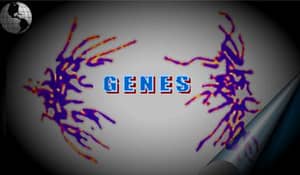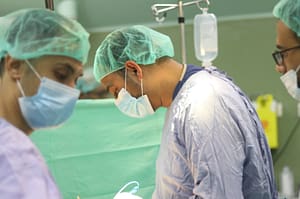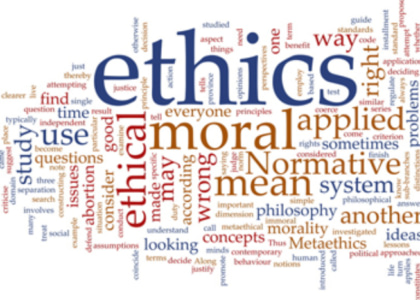[grwebform url=”https://app.getresponse.com/view_webform_v2.js?u=wfNAY&webforms_id=57753701″ css=”on” center=”off” center_margin=”200″/]
Nutrigenomics and BioHacking Ethics
The rapid advance of technology has given us nutrigenomics. Humanity now has the ability to alter our own biology in ways that were once only possible in science fiction films. This newfound power raises important ethical questions, particularly regarding the implications of bio hacking on future generations.
The field of biohacking is one of the most promising emerging technologies with the capacity to alter the human experience. Few other technologies have the same potential to be as transformational as biohacking.
What is Biohacking?
When we talk about biohacking, we are referring to the use of technology to alter or improve our own biology. This practice has the potential to profoundly transform how we live and interact with the rest of the world.
For example, biohacking could allow us to have better control over our own bodies, including our health and physical appearance. Additionally, biohacking could enable us to enhance our cognitive abilities or even give us superhuman strength. As you can see, the potential applications of biohacking are virtually limitless.
Biohacking and Social Gapping
With such great potential comes great responsibility. As we begin to experiment with biohacking, it is important to consider the ethical implications of our actions. One major concern is that bio hacking could lead to a widening of the gap between the rich and the poor. Those who can afford to enhance their bodies will have a significant advantage over those who cannot.
Additionally, there is the risk that bio hacking could be used to unfairly manipulate people or control populations.
Nutrigenomics
 Nutrigenomics is a type of bio hacking that is becoming increasingly popular. The field of nutrigenomics (or nutritional genomics) is relatively new. As such, the ethical implications of this branch of science are still being explored. It is the study of how nutrients interact with our genes to influence our health. This area of research has the potential to revolutionize the way we approach nutrition and disease prevention. For example, by understanding how certain nutrients can affect gene expression, we may be able to develop targeted nutritional therapies for a variety of conditions.
Nutrigenomics is a type of bio hacking that is becoming increasingly popular. The field of nutrigenomics (or nutritional genomics) is relatively new. As such, the ethical implications of this branch of science are still being explored. It is the study of how nutrients interact with our genes to influence our health. This area of research has the potential to revolutionize the way we approach nutrition and disease prevention. For example, by understanding how certain nutrients can affect gene expression, we may be able to develop targeted nutritional therapies for a variety of conditions.
Nutrigenomics Ethical Implications
However, there are also some concerns about the ethical implications of nutrigenomics. One worry is that this knowledge could be used to manipulate people’s diets in unethical ways. For example, it is possible that companies could use nutrigenomic information to create ‘customized’ foods. And they could be designed to exploit an individual’s genetic vulnerabilities. People could be duped into eating foods that they don’t realize are harmful to their health. An example of this is the fortification of breakfast cereals with folic acid. This is beneficial for some members of the population. However, it can mask Vitamin B12 deficiency which can impact cognition in those affected.
Nutrigenomics and Discrimination
Another ethical concern is that nutrigenomic information could potentially be used to discriminate against people based on their genes. Insurance companies could use this information to deny coverage to people at increased risk of certain conditions. Employers could also use nutrigenomic information to screen out applicants. They could eliminate those prone to get sick or have genetic disorders; and therefore have time off work.
Overall, the ethical implications of nutrigenomics are still being explored. However, it is important to consider these issues when discussing the potential applications of this branch of science.
Nootropics
Let us now turn our attention to another aspect of bio hacking: nootropics. In recent years, nootropics have become increasingly popular as a means of enhancing cognitive performance. Often referred to as “smart drugs”, these substances can help to improve focus, memory, and problem-solving ability. However, the ethics of taking nootropics are often called into question.
Are Nootropics Cheating?
Some argue that the use of these substances is tantamount to cheating, as it gives users an unfair advantage over those who do not take them. Others argue that nootropics are simply tools that can be used to level the playing field, providing an equal opportunity for all individuals to excel. One reason cognitive enhancement is so controversial is because it changes the way the body works.
Nootropics for Good
Historically, people are more likely to support drug use for symptom management, than for cognitive enhancement in healthy people. However, it could be argued that prevention is better than cure. If taking nootropics or herbal supplements prevents the development of disease, and keeps people healthier for longer, is that not a valid argument?
Nootropics are often taken to increase concentration and reduce fatigue. One of the most commonplace substances used by many people on a daily basis, is caffeine. A good strong cup of Joe, is often used by the general public to keep them going when they are at work or even at play.
Students are renowned for working late into the night before a deadline, to hand in an assignment, or cramming before an exam. These students often reach for a strong coffee, can of Red Bull, or other so-called energy drinks to keep them awake and alert. Is that ethical? I doubt many people would even worry about the ethics of this.
Nootropics Enhanced Performance
However, when nootropics are taken by students to increase cognition and performance, it could be argued that they then have an unfair advantage over their peers. Is this the same as the ethical issues regarding drug-induced enhanced performance in sports?

To the Future
As we enter this brave new world of self-directed evolution, it is critical that we consider the potential risks and ensure that we maintain our core values of equality and social justice. Only by proceeding with caution and care can we hope to realize the great potential of biohacking without losing sight of our humanity.
Our website has a section on Emotional Wellness, with an article Importance of Stress Management. If you are feeling stressed about the ethical issues associated with nutrigenomics and biohacking, perhaps that 5 minute read could help.
Click here to access an article from Medical News Today, “What to Know About Biohacking” for a thorough overview of the practice.
[grwebform url=”https://app.getresponse.com/view_webform_v2.js?u=wfNAY&webforms_id=57753701″ css=”on” center=”off” center_margin=”200″/]
References
- Nutrigenomics research: a review https://www.ncbi.nlm.nih.gov/pmc/articles/PMC3602567/

